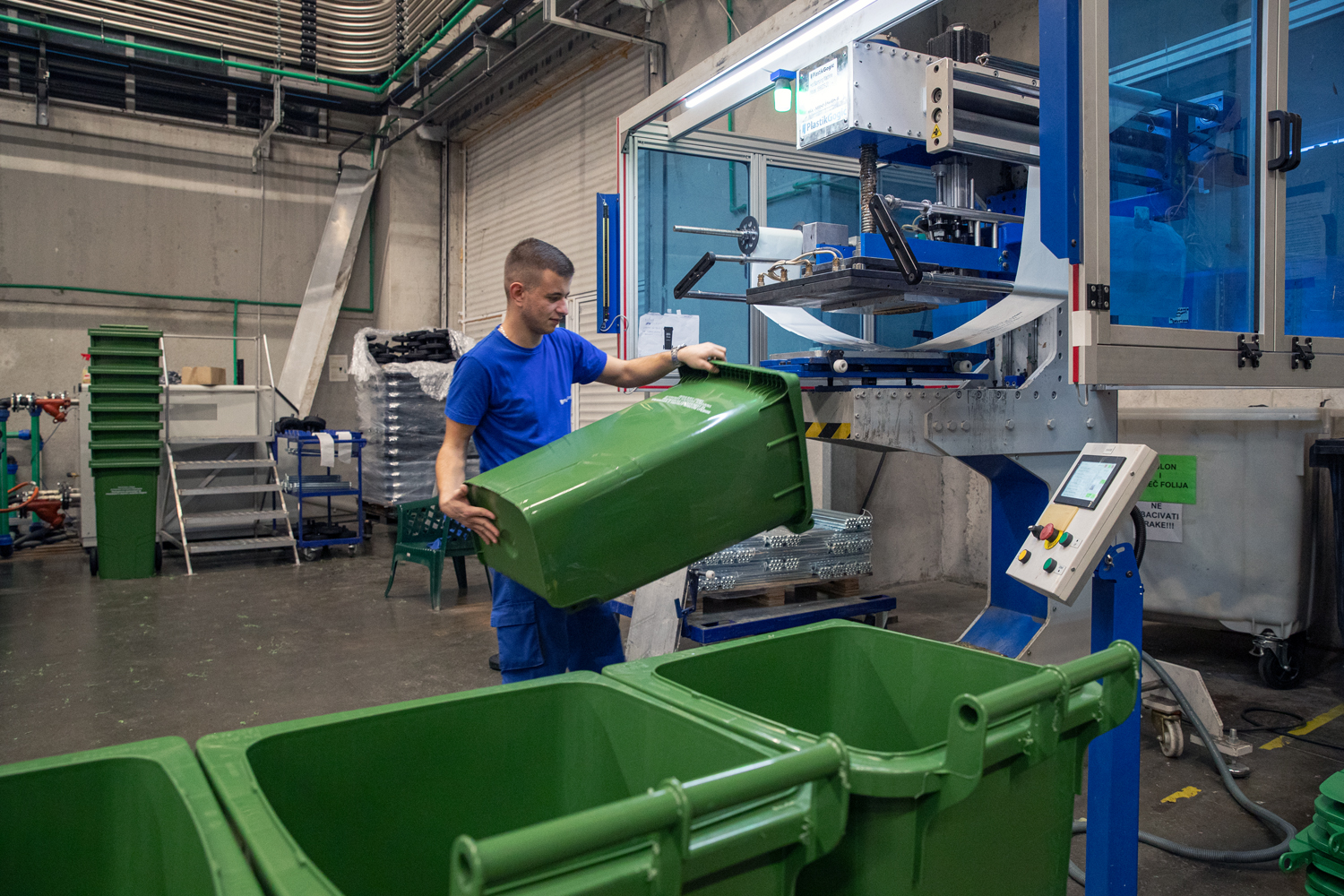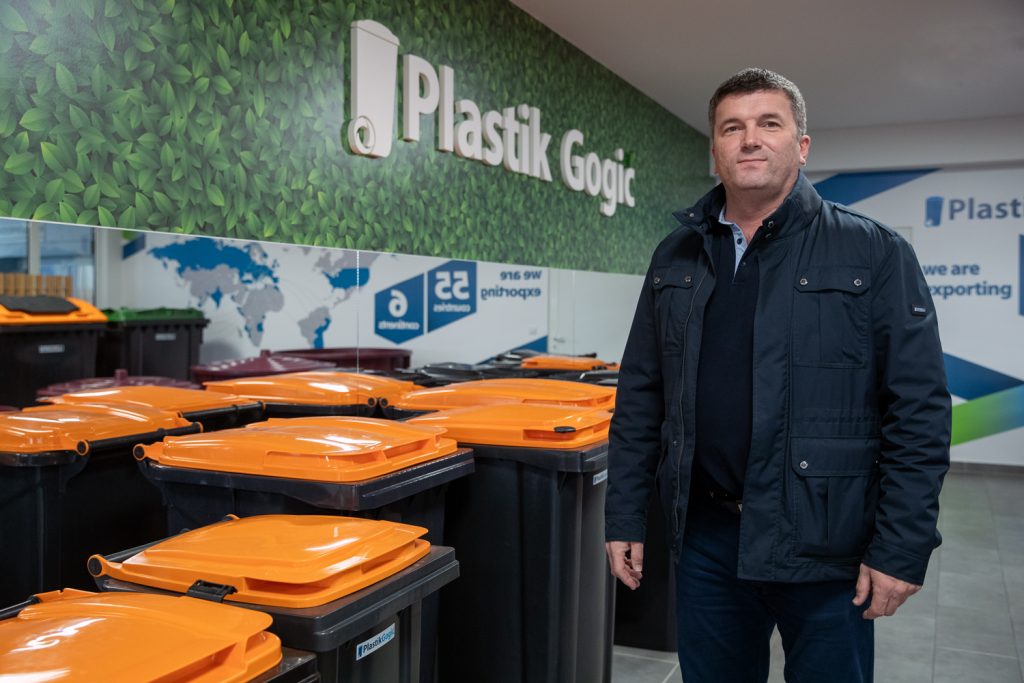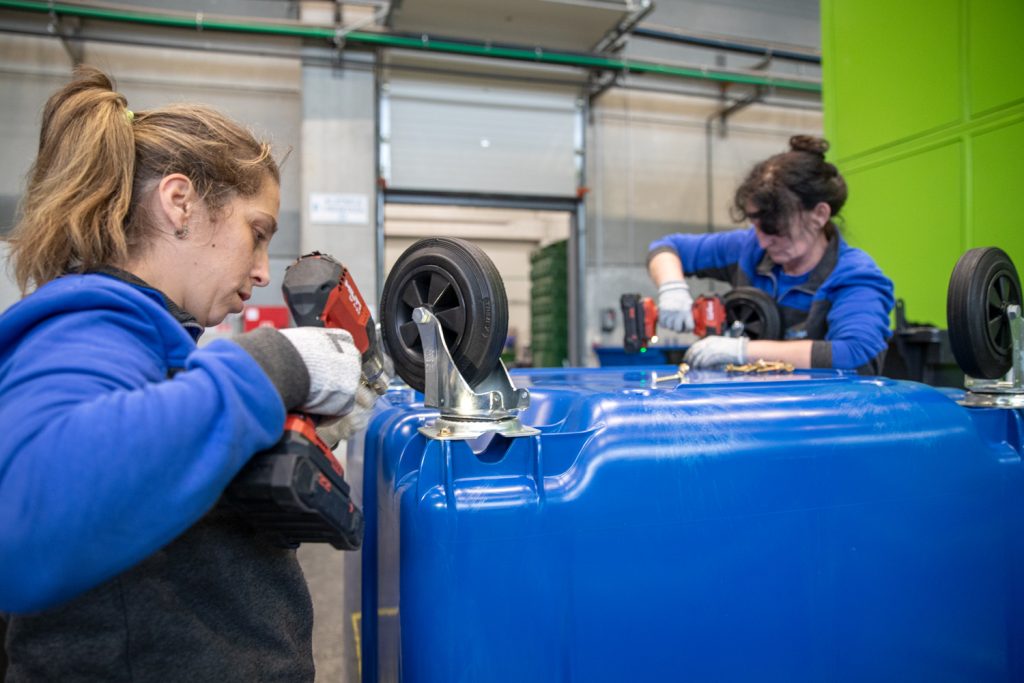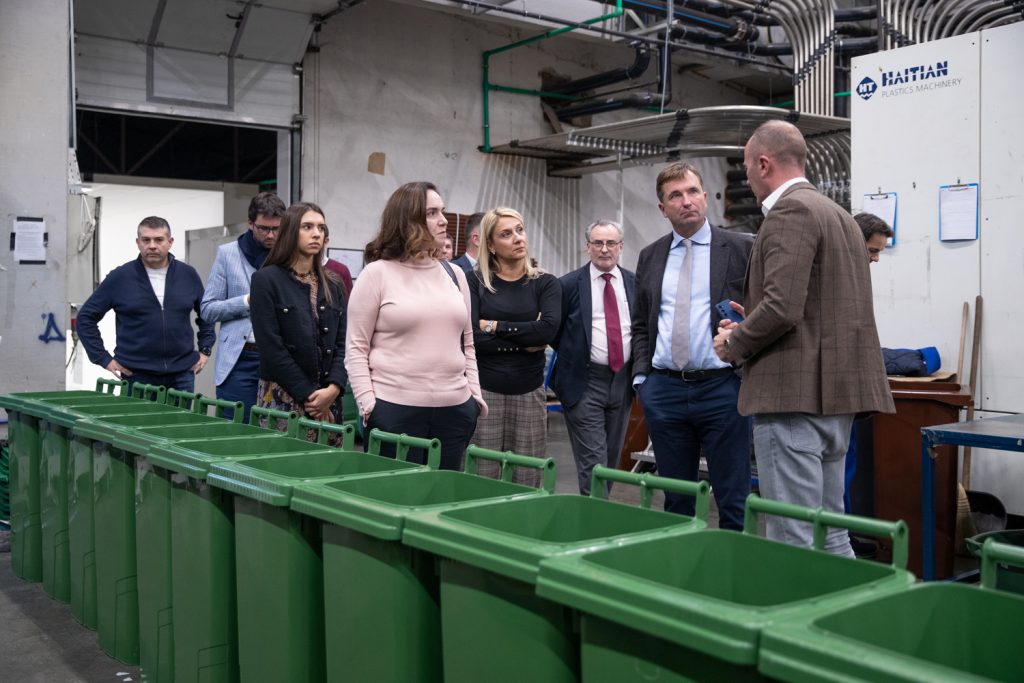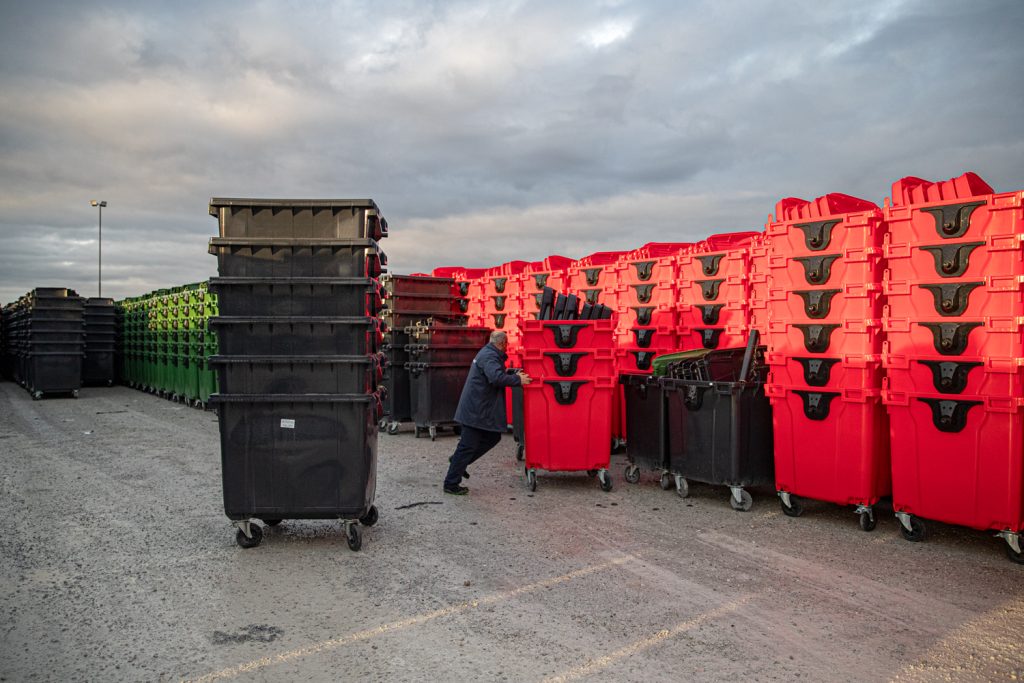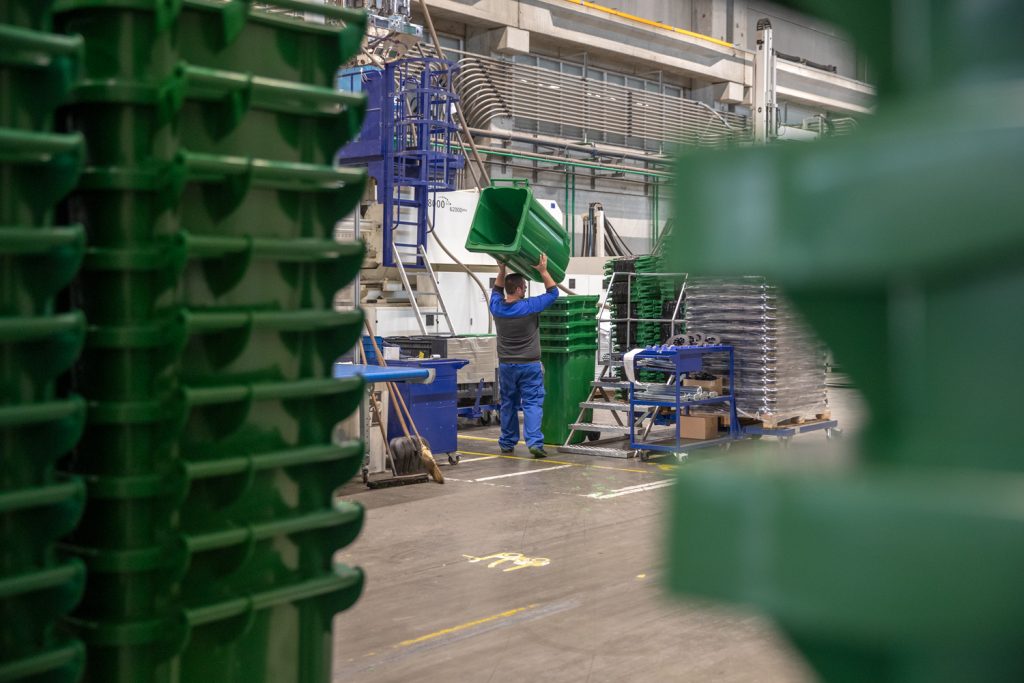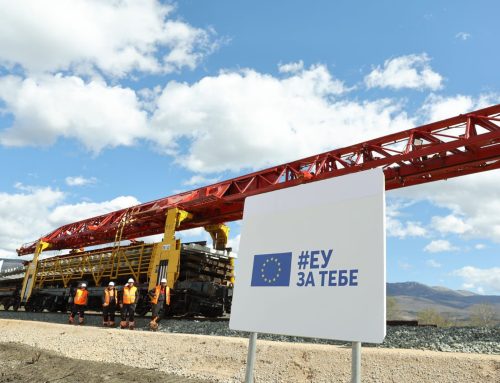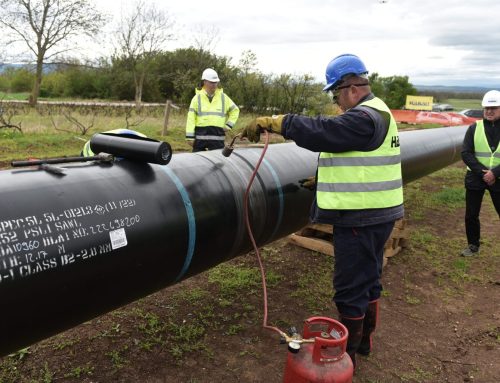419 Serbian companies successfully implemented investment projects and improved their competitiveness thanks to the programme implemented by the European Bank for Reconstruction and Development (EBRD), with financial support of the European Union (EU) and in cooperation with the Ministry of Economy of the Republic of Serbia.
One of the SMEs that participated in the programme, MNG Plastik Gogić, the private company that manufactures plastic waste bins, tubs and seats for sports stadiums invested in a centralised system for transport of raw materials from silos to machines, secured through Intesa Leasing.
“With this investment, we have achieved greater productivity with significant reductions in waste and energy, but also improvements in terms of product quality and higher protection and safety at work. We use over 15,000 tons of raw material every year so even a 1 percent savings means a lot to us. We planned this investment anywas, but the good financing conditions and the grant we received through this program still meant to us”, says Goran Gogić, co-owner of the company.
MNG Plastik Gogić is located in Inđija and even 90 percent of the companies financed through the programme are located outside Belgrade, where access to financing for companies is often even more difficult.
Aleksandra Vukosavljević, EBRD Director for Financial Institutions, Western Balkans and Eastern Europe, said: “Access to financial support can encourage local firms to invest in strengthening their competitiveness, and we are pleased to see that our support has reached so many local companies in Serbia. Together with our partners, the European Union and the Serbian Ministry of Economy, we continue to improve access to finance for SMEs in Serbia through new support programmes that will soon follow.”
Martin Klaucke, Head of Operations Section, EU Delegation to Serbia, adds: “Small and medium-sized enterprises are vital for the Western Balkan economies. That is why, building on our longstanding cooperation with the ERBD in Serbia, we are continuing to support SMEs in strengthening their resilience and investing in sustainable growth. The EU-funded projects in Serbia promote job creation, economic and technological development and legislative framework improvement, all of which contribute to an improved economic landscape.”
Within the programme, SMEs received €107 million in EBRD loans for their investments, with an additional €9.5 million in incentive grants from the European Union, secured from national and regional pre-accession funds. EU funds in the amount of approximately 10 million euros were provided at the proposal of the Ministry of Economy.
The programme, which has been implemented in Serbia since 2019 and is now in its final phase, offers small and medium-sized enterprises access to EBRD loans and EU grants, through local commercial banks, for investing in business improvement to reach EU standards and increase competitiveness. The funds were on-lent through local commercial banks.
Most of the investments were in the manufacturing, transportation, agriculture, retail and services, construction, food and beverage manufacturing sectors. Supported investments were in compliance with at least one EU directive in the areas of energy efficiency and environmental protection, health and safety, and product safety and quality.

